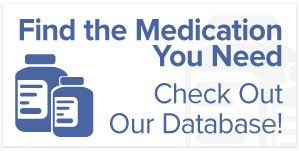Polyautoimmunity refers to the presence of many autoimmune diseases in the same individual. Multiple autoimmune syndromes refer to the presence of three or more separate autoimmune diseases in a single individual. About 25% of people with autoimmune disorders get additional autoimmune diseases.
According to Jane Buckner, president of Benaroya Research Institute, the exact reasons why people may have several autoimmune diseases are still being studied, but scientists agree that some of these diseases are related to hereditary and environmental causes. She says that autoimmune diseases can be produced by the same gene flaw that first sent off the immune system to assault the body.
Are Autoimmune Diseases Curable?
Many different bodily organs and tissues may be affected by the autoimmune disease category. At present, no treatment exists for autoimmune illnesses.
Cure for Autoimmune Diseases
In autoimmune illnesses, the immune system mistakenly targets healthy tissues and organs, triggering an inflammatory response and potentially causing tissue damage. There is no cure for autoimmune diseases. Medications and lifestyle adjustments can help with the symptoms of autoimmune disorders, but they cannot stop or reverse the autoimmune process itself.
Individuals with autoimmune disorders may benefit from making adjustments to their lifestyle, such as by decreasing their stress levels, increasing their physical activity, and adopting a healthier diet. Flares can be reduced and symptoms managed by keeping to a healthy weight, giving up smoking, and limiting or eliminating exposure to known triggers like particular foods, chemicals, or microorganisms.
Autoimmune illnesses have diverse and poorly understood origins. Although environmental triggers, including infections, medications, and chemicals, are suspected of playing a role in the development of autoimmune illnesses in some situations, genetic factors may also play a role.
However, while there is currently no cure for autoimmune diseases, there are ways to keep symptoms at bay. In order to stop or halt the disease’s course, treatment focuses on reducing inflammation and managing symptoms.
Nonsteroidal anti-inflammatory medicines (NSAIDs), corticosteroids, disease-modifying antirheumatic drugs (DMARDs), and biological therapies are frequently used to treat autoimmune diseases. In order to lessen inflammation and stop further organ and tissue damage, these drugs modify or suppress the immune response.

Will There Ever be a Cure for Autoimmune Diseases?
New and improved treatments for autoimmune illnesses are the subject of continuing research. Researchers are working on stem cell transplants to reboot the immune system, gene therapy to change or replace malfunctioning immune system genes, and the creation of immunomodulatory medicines to aid in more precise immune regulation. These methods, however, are still in their infancy and are not widely available just yet. Without a miracle solution, many people with autoimmune disorders can still live full, meaningful lives with the help of medical professionals.
How can Medical Professionals Determine Whether a Patient has an Autoimmune Disorder?
Healthcare providers typically spend more time on an autoimmune illness diagnosis compared to the diagnosis of other disorders. The symptoms of many autoimmune diseases overlap with those of other diseases. The following factors will aid your doctor in making a diagnosis:
- How long you’ve been experiencing any symptoms, and what symptoms they are.
- A file detailing the medical background of your family.
- Diagnostic Procedure for Anti-Nuclear Antibodies (ANA).
- Whole blood count (CBC).
- The concentration of erythrocytes in the blood (ESR).
Final Word
Individuals with autoimmune diseases should collaborate closely with their healthcare professionals to create a personalized treatment strategy. Although there is currently no known cure for autoimmune diseases, they can be managed, and their effects mitigated with treatment. Contact The RX Helper to learn more.



